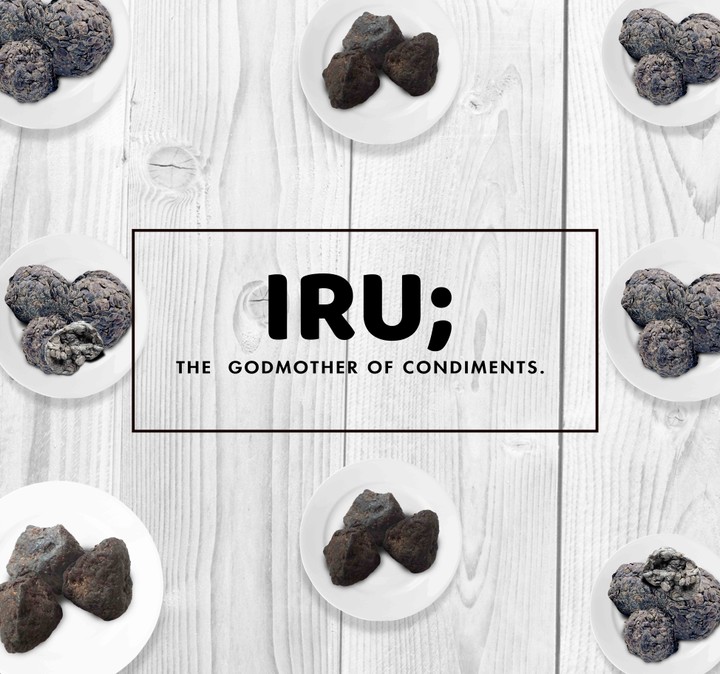African Locust Bean, is the secret behind the making of ‘Iru’ by Yorubas, ‘Ogiri Okpei or Dawa Dawa’ by Igbos, the perfect seasoning used in sauces, soups and stews.

If you are not used to the “funky” aroma of Ogiri, you might be taken aback, but the deep savouriness it brings to dishes, especially if first cooked in oil, will leave you impressed.
This is one ingredient in soups you can’t miss even if you were miles away. The aroma is bound to keep you on your toes while cooking. Iru is incorporated in soups like Egusi/Oha soup, Efo Riro, Onugbu soup, Ofada sauce, and a crucial ingredient in the preparation of African salad (Abacha).

Ever wondered how these local seasonings are made? Well, we are glad you stumbled on this post as we will show you how these various nutritious and healthy local condiments are made.
Iru/Dawadawa
Sort the locust beans to remove any foreign particles. Soak the locust beans in hot water and leave for seven days or boil for about 8 hours.
Place the seeds in a mortar and pound with a pestle to remove the hull from the seed. Sieve off the chaff. The cleaned seeds are then steamed and spread inside a calabash filled with wood ash and covered with leaves.
The calabash is covered and wrapped with clothes or sack for about 24 to 36 hours for fermentation to take place. Dawadawa is then pressed into cakes, in the form of discs. This can now be used as a condiment for soups or stews. This seasoning is a rich source of protein, vitamins, and other nutrients.
Ogiri Okpei
Ogiri Okpei is a fermented, mashed and compressed locust beans, mostly used by the Igbos.
The seeds of choice are first sorted, washed, and cleaned thoroughly in clean water. Note; you can use Egusi seeds, fluted pumpkin, Mesquite seeds, castor oil seeds, or sesame seeds.
Cook the seeds until they get softened so that the seeds coverings can easily peel off for easy removal. Afterward, wash the seed and pour it in a sieve to drain excess water.
Then add the seed into a vessel then cover with local leaves like plantain leaves and allow to stand for at least 4 days to undergo fermentation.
It is optional to place the vessel or jar under the sunlight during the process of fermentation to hasten up the fermentation process.
Once the fermentation process is complete, ground the fermented seeds into a smooth thick paste, then mould into small balls and allow to dry under the sun.
Once the Ogiri okpei is sun-dried, it is then ready for usage.
Ogiri Ijebu/Egusi
This food flavouring condiment is consumed mostly by the Igbo, Ijebu and the Ondo tribe. While this may not be a popular seasoning, the aroma it gives our soup especially the Egusi soup will leave you wondering where you have been all this while to have missed a whole lot on the delicious taste of this condiment. To prepare this Ogiri;
Boil melon seeds until it becomes very soft and meshed.
Wrap the mashed melon seeds tightly in banana leave and leave it to ferment for 5 to 7 days.
Place the fermented mashed melon in an earthen clay pot and cover with jute bags to provide low oxygen tension.
Place the wrapped fermented mashed melon on a wire mesh and smoke over charcoal heat at a distance for about two hours before using it to cook.
Foodies, if you haven’t used any or tried another type of Iru, you are missing out a great deal. Try making this local seasoning at home
